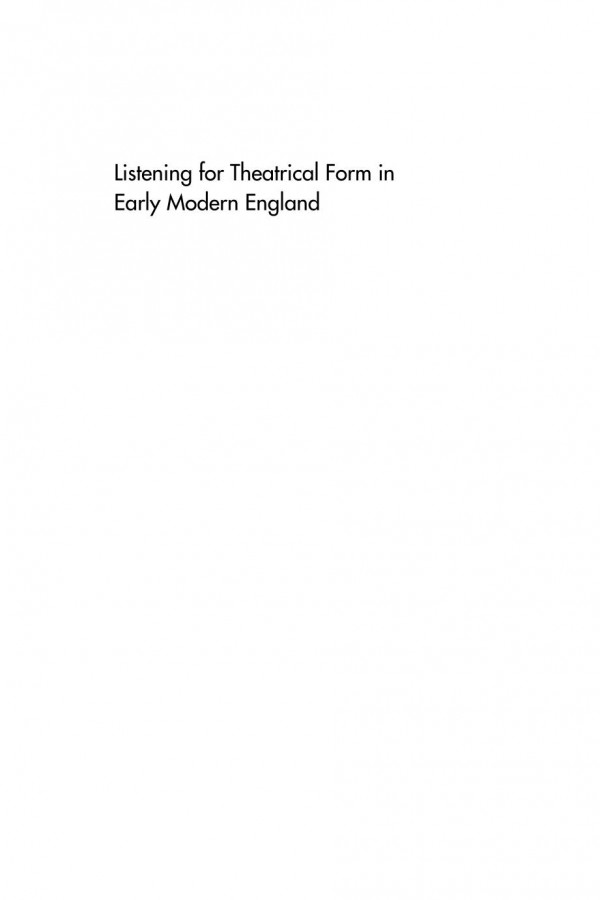

Most ebook files are in PDF format, so you can easily read them using various software such as Foxit Reader or directly on the Google Chrome browser.
Some ebook files are released by publishers in other formats such as .awz, .mobi, .epub, .fb2, etc. You may need to install specific software to read these formats on mobile/PC, such as Calibre.
Please read the tutorial at this link: https://ebookbell.com/faq
We offer FREE conversion to the popular formats you request; however, this may take some time. Therefore, right after payment, please email us, and we will try to provide the service as quickly as possible.
For some exceptional file formats or broken links (if any), please refrain from opening any disputes. Instead, email us first, and we will try to assist within a maximum of 6 hours.
EbookBell Team

0.0
0 reviewsEarly modern drama was in fundamental ways an aural art form. How plays should sound, and how they should be heard, were vital questions to the formal development of early modern drama. Ultimately, they shaped the two of its most popular genres: revenge tragedy and city comedy. Simply put, theatregoers were taught to hear these plays differently. Revenge tragedies by Shakespeare and Kyd imagine sound stabbing, piercing, and slicing into listeners’ bodies on and off the stage; while comedies by Jonson and Marston imagine it being sampled selectively, according to taste. Listening for Theatrical Form in Early Modern England traces the dialectical development of these two genres and auditory modes over six decades of commercial theatre history, combining surveys of the theatrical marketplace with focused attention to specific plays and to the non-dramatic literature that gives this interest in audition texture: anatomy texts, sermons, music treatises, and manuals on rhetoric and poetics.